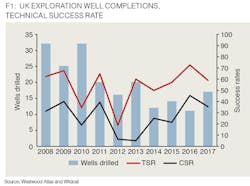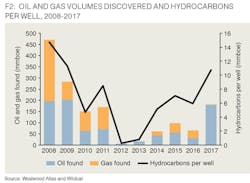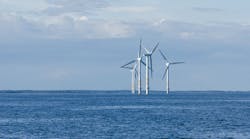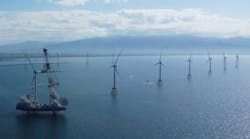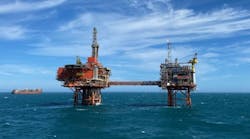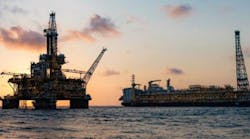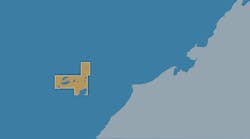Bruce Beaubouef • Houston
Offshore exploration picking up in select UK North Sea basins
Westwood has identified a total of 199 exploration wells drilled across the UK continental shelf (UKCS) over the past 10 years, in its report, UK Offshore Exploration Performance 2008-2017.
The wells, drilled by 117 companies, targeted 26 plays and discovered 1.5 Bboe of commercial resources, of which 900 MMboe have since been sanctioned for development. On average, exploration proved 150 MMboe/yr at a finding cost of $5.1/boe, with 22% of the UK’s production replaced through these finds.
At peak in 2008, 32 wells and around 471 MMboe were discovered, but this dipped to an average of 15 wells in 2012/2013 with only 10 MMboe/yr discovered.
After the oil price drop of 2014, activity stabilized at an average of 15 exploration wells per year, with commercial success rates reviving to a high of 45% in 2016, likely due to selective drilling of improved prospect inventories. Last year, the additional volumes discovered totaled 180 MMboe.
Maersk was the most active explorer during the period (20 exploration wells) and proved the highest net resources (215 MMboe) due to its 66% share of the 250-MMboe Culzean discovery, drilled in the UK central North Sea in 2008. Otherwise, only BP and Dana Petroleum proved more than 100 MMboe net resources. Five of the most active explorers had finding costs of <$2/boe.
So far, three exploration wells have been completed in the first nine months of 2018, Westwood claims, of which two are commercial discoveries. Total’s 1-tcf Glendronach is in the emerging syn-rift Cretaceous turbidite play west of Shetlands and is the second largest discovery in recent years after Culzean.
Over the next 18 months, Westwood believes 17 exploration wells will be drilled across the UKCS, targeting more than 2 Bboe unrisked resources, with more than half west of Shetland, and a further 600 MMboe-plus in the central North Sea.
Glendronach shows that high-impact UK discoveries are still possible, the report concludes, 50 years into the history of UKCS exploration.
Technology investments pay off in deepwater Mero EWT
Petrobras has completed an extended well test (EWT) on the Mero field in the Libra block in the presalt Santos basin. This had started last November from the FPSO Pioneiro de Libra, which was the company’s first EWT-dedicated program equipped to inject the gas produced. During the tests, the production well delivered 58,000 boe/d, which the company described as “a great result in ultra-deepwaters.” The other aims, all achieved, were to obtain high-quality data and reduce uncertainties over the reservoir, to allow accelerated deployment of up to four full-scale production systems on Libra in the next few years, each capable of producing up to 180,000 b/d of oil. •


